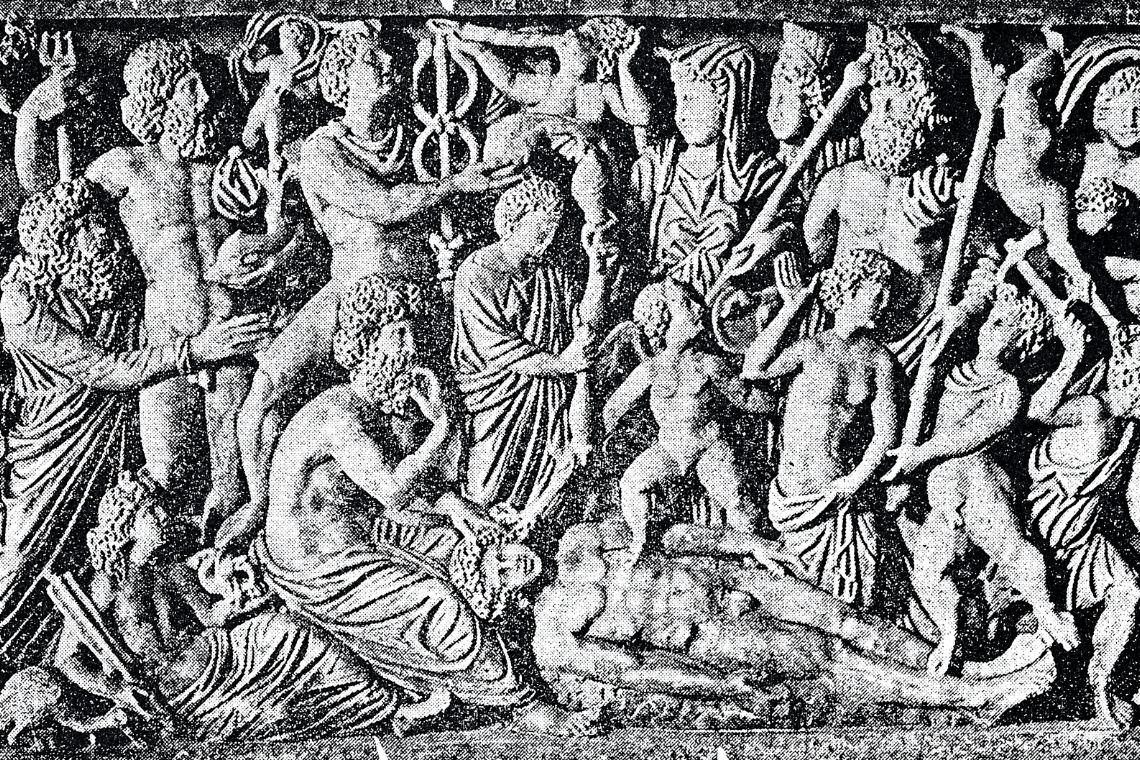Prometheus is a well-known figure in Greek mythology, recognized as one of the Titans and a god of fire. He is often regarded as the supreme deceiver and his name possibly means "forethought," which emphasizes his intellectual side. The story of Prometheus revolves around him defying the gods of Olympus by stealing fire from them and giving it to mankind in the form of technology.
In addition to fire, Prometheus also played an important role in shaping humanity. He is credited with creating the first humans from clay and breathing life into them!
It is clear that Prometheus is an enigmatic but really interesting figure. So in this blog post, we are going to take a deeper look at Prometheus’ role in Greek mythology, but also beyond. Without further ado, let’s start with an overview of the Titan’s role in ancient Greece.
Prometheus: An Overview
In Greek mythology, Prometheus was a Titan known for his intelligence, trickery, and association with fire. According to ancient tales, he was the creator of mortals, taking on the role of a master craftsman.
Prometheus and the Gift of Fire

Ancient rome - Prometheus, teaching the humans - Credits: clu/ Canva
The titan played a pivotal role in the development of human civilization by providing humanity with the invaluable gift of fire. This act forever altered the course of human history, as it enabled the early humans to harness the power of fire and develop critical technologies for their survival and growth.
One of the primary benefits of fire was its ability to generate warmth and deter wild animals, which enhanced the safety and overall well-being of early human communities. Furthermore, fire enabled humans to cook food, which improved its nutritional value and taste. As a result, people began to discover new food sources, leading to dietary diversification and improvements in overall health.
In addition to its practical uses, fire also contributed to the growth of human civilization in other ways. It allowed for the creation of various tools and weapons by facilitating metalworking. This skill proved essential as societies advanced, enabling them to build stronger structures, develop more advanced technology, and engage in trade with neighboring regions.
The Punishment of Prometheus

Greek stamp, Prometheus punished by Zeus - Credits: Lefteris_/ Canva
However, this gift came at a steep price. In Greek mythology, Prometheus dared to steal fire from the gods to bestow upon humanity. This act of defiance enraged Zeus, the king of the Olympian gods. As a punishment, Prometheus was chained to a rock, and every day an eagle ate his liver, which would regenerate overnight, subjecting him to eternal torment.
The story of Prometheus and the gift of fire serves as a powerful symbol for the acquisition of knowledge and the subsequent impact on human progress. It implies that knowledge, although crucial for growth, always comes with responsibilities and potential consequences. The myth of Prometheus reminds us that throughout history, the quest for knowledge has often required great sacrifices and has sometimes resulted in unexpected repercussions.
Prometheus in Art and Literature
Prometheus is an important figure in both art and literature, with his story continuing to influence contemporary culture. In Greek mythology, Prometheus is one of the Titans, the supreme trickster, and a god of fire. As such, his intellect and courage often serve as a source of inspiration:
Philosophical Interpretations of Prometheus
To be exact, Prometheus' story has had an impact on various philosophical schools of thought. In Aeschylus' tragedy Prometheus Bound, the Greek playwright depicts the suffering of Prometheus as he is punished for stealing fire from the gods and giving it to humans. This act of rebellion and sacrifice can be seen as an expression of empathy and defiance against authoritarian power structures.
Friedrich Nietzsche, a prominent German philosopher, identified Prometheus as a symbol of revolt against divine authority, which appeals to the human drive for freedom and autonomy. Other philosophers, such as Jean-Jacques Rousseau, used the myth of Prometheus to comment on human progress, suggesting that the invention of fire had dramatically and irrevocably changed human culture.